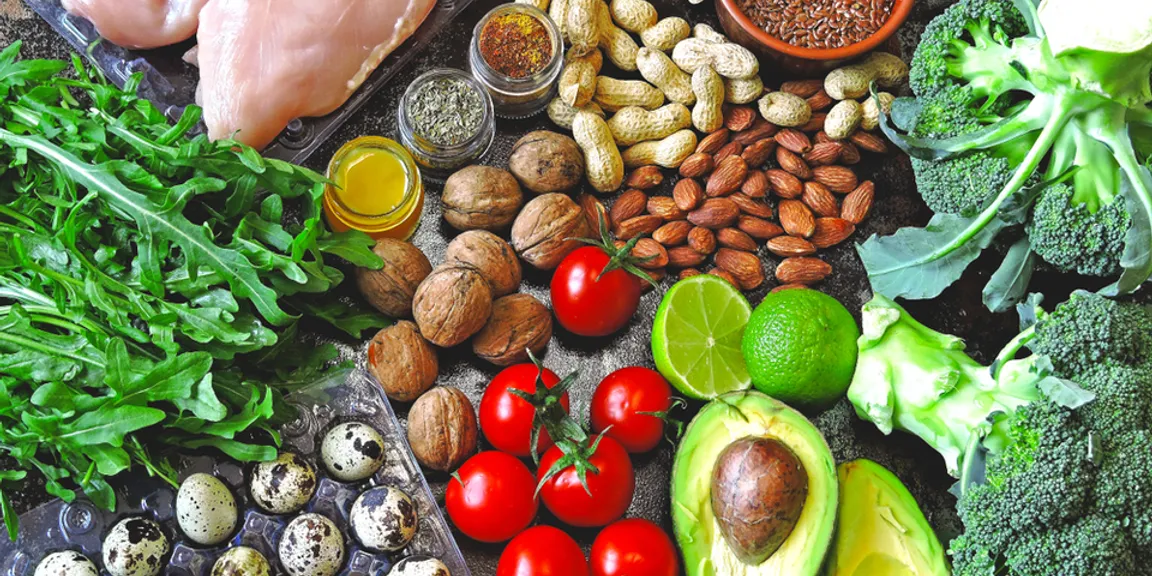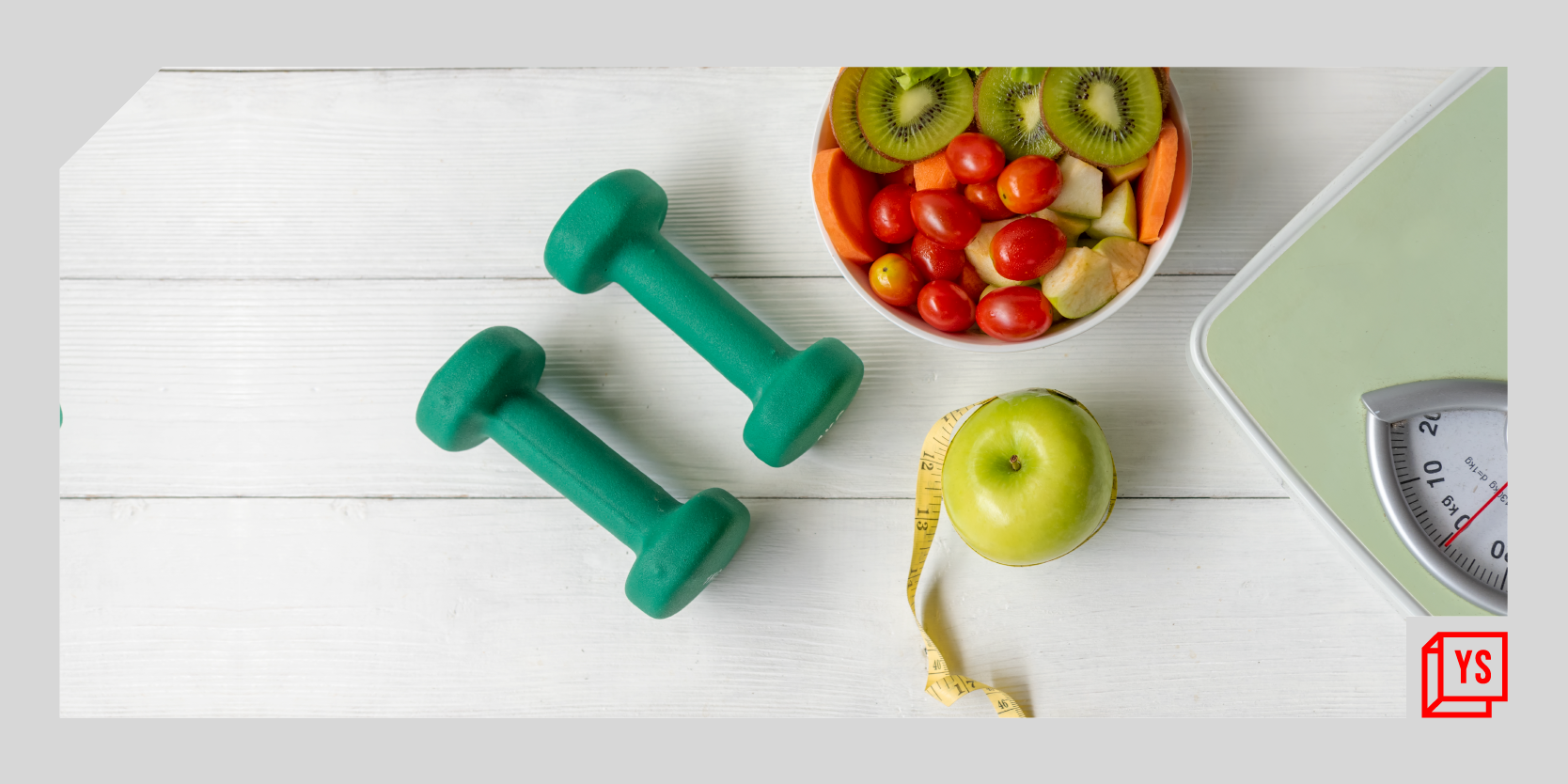Diet Dilemma: Should you take the low carb, high-fat route?
Are you planning to go on a final diet before the year ends? Here's the lowdown on the Keto diet, and how to do it the right way
There are a lot of diets out there in the world today, but Keto is really the buzzword of the hour. So, what is Keto? You probably have heard a lot about this diet, but I want to begin by clearing up some of what is ‘not’ Keto.
I’ve heard many people tell me that they’ve gone Keto, and when asked about what is Keto, they respond by saying it is a low carbohydrate diet.
What Keto is not

The ingredients in a Keto diet
Keto is not another low carb diet. It is a high fat diet, which is required to be quite low in carbohydrate but only moderate in protein, and this is where the understanding might vary. The idea is to drop carbohydrates low enough that glucose levels fall, and stored triglycerides travel to the liver. Your liver, then, produces Ketones, and your body starts to use Ketones for fuel rather than the glucose which it has been used to all this time.
Food and calories

A Keto dessert
So really, the Keto diet requires you to eat about 70% of your calories from fat, 25% from proteins and only 5% from carbohydrates. This means that there are no grains, starches or tubers, and perhaps only some very low glycemic fruit like berries.
It also means that you need to include plenty of fats from grass fed butter, ghee, coconut oil, coconut milk, high quality meats and seafood, low starch vegetables, avocado, nuts, seeds, MCT oil, some fermented foods and sweeteners like stevia, monk fruit and artificial sweeteners, which I am truly against for so many reasons.
My concern is that Keto was really a diet used therapeutically for conditions such as brain injuries, blood sugar regulation, brain tumours, some cancers, autism, Alzheimer’s, Parkinson’s, multiple sclerosis and other neurological conditions, and used so because the brain is made up of 70% fat and the diet was helpful in those situations where the brain required some healing.
If you do want to try Keto, a plant powered Keto variation is probably still safer where there is a high consumption of non-starchy vegetables like broccoli, cabbage, cauliflower, leafy greens and asparagus, in combination with healthy fats like avocado, ghee and coconut milk, combined with some clean proteins.
Variations of Keto which are high in dairy products like cheese and processed meats like bacon can be detrimental in the long run, as there is just not enough data yet on long term repercussions of eating that way.
Dairy can also be inflammatory for many people suffering from chronic conditions.
Vegetarian options

Vegan ketogenic courgette salad with avocado tomato pumpkin seeds
If you are vegan or vegetarian, it is definitely more challenging to do Keto, because traditionally the diet contained fresh meat and fish. Having said that, since the diet is so high in fats, most of that can come from plant sources, making it possible to be a Keto vegan or vegetarian.
Vegan and vegetarian proteins can be higher in carbohydrates. The best option is to stay foods that are higher in proteins and fats, like nuts and seeds. If you do eat eggs, free range eggs can be a wonderful option to add.
Liver and gallbladder issues
What is crucial to safely implementing a Keto diet is having a fully functional liver and gallbladder, without which, the Keto diet can be harmful. If you have challenges with your liver, which so many people do, you will struggle to break down that level of fat, so beginning a Ketogenic diet can cause you to congest your liver, disrupt digestion and lead to multiple symptoms and conditions related to improper liver health.
The other aspects where Keto can be harmful are that it can lead to selenium, calcium and vitamins C deficiency, electrolyte depletion, Keto acidosis where the blood becomes acidic when it floods with Ketones and glucose, headaches, nausea, bad breath, dehydration and bone density problems. Many of these problems are also associated with not have an optimally functioning liver that can handle that level of fat.
Keto can make you lose weight rapidly, because it has a dramatic effect on lowering insulin resistance, producing Ketones and increasing fat burning. Since a large part of weight loss resistance is due to insulin resistance, Keto can be the difference in that rapid weight loss.
What matters though, as I mentioned before, is to not make it a highly processed Keto, with farmed meat and processed dairy. If it can be adapted to a plant powered Keto, that includes whole foods, with an emphasis on non-starchy, colourful vegetables, it can be done safely. The problem happens when it becomes high in inflammatory, processed foods.
Is the Keto diet for everyone?

The Keto diet may not be right for everyone
In my opinion, Keto is not a diet for long term use. It is a therapeutic diet that can be done very effectively for a short period for a variety of conditions. I would suggest cyclical Keto, using it for a month or two every few months, to heal the brain, and come back to a more diverse diet, which also supports you better as it makes you more metabolically flexible, where you are able to use a different fuel sources like glucose and Ketones, as effectively.
If it has to be sustained, Keto requires more long-term research, and people need to use more caution while trying Keto. Work with a skilled practitioner who can understand your body, and advise you effectively if Keto can help you personally.
Also, remember to always try and follow a plant-powered, whole foods Keto diet!









